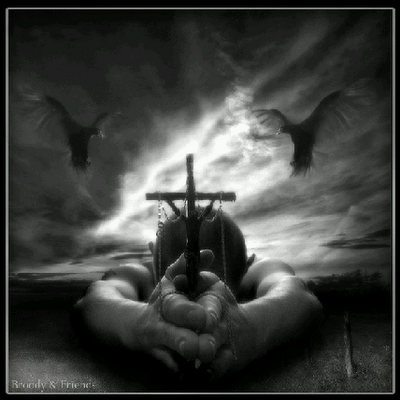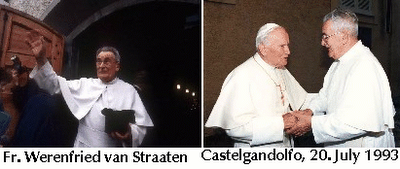'United 93' and the religion of the sword
Guy Adams
RenewAmerica Deputy Grassroots Director
Qur'an 9:73: "...make war on the unbelievers and the hypocrites and deal rigorously with them. Hell shall be their home: an evil fate."
Recently, I saw the movie United 93, and I will never view Islam the same. I also will never be the same.
n this article, I want to treat Islam with all due respect. But I'm troubled by disturbing words from the Qur'an like the verse above. Isn't Islamic terrorism — as we witnessed on 9/11 and as we've seen around the world — inspired by such verses from the Qur'an?
If Islam is committed to hostile verses like that above, wouldn't a reasonable person conclude that Islam poses a threat to our nation?
A look at Islamic intent
What follows is not a viewpoint you're going to hear in the mainstream media — but you should. I've heard all sorts of Muslim scholars try to dilute or dismiss the verses in the Qur'an that explicitly incite violence against all non-Muslims, but these verses are what they are, and I've listed some of them throughout this article.
Islam is, was, and always will be the "Religion of the Sword." If it's not, then Muslims around the world need to prove it to the rest of us by their peaceful actions. But for our part, we need to understand that just as appeasement did not work in 1939 with the Nazis, it won't work now with an even more determined threat.
By the Qur'an's own words, Islam is determined to be the antithesis of the West! I would frame the heart of the controversy this way: Islam asks its sons to die for Allah — while the Christian God sent His Son to die for all mankind. This fundamental theological difference leads to two virtually polar world views.
Let me say at the outset that there are many Muslims who might not wish us ill. Although many Islamic fundamentalists in places like Iran and Syria clearly see themselves as our foe, Islamic "secularists" in parts of Iraq and elsewhere do not feel this way. So, I agree that not all of Islam is intent on doing us in. The problem is the doctrine of hostility toward "unbelievers" found in the Qur'an, itself.
It's therefore vital that we wake up and realize that we are in a war with Islam — by virtue of Islam's own declarations — and that if we fail to realize this inevitable fact, we will lose this war.
Only Muslim extremists?
How can anyone say — as some do — that it's only "Muslim extremists" who are killing Americans? The truth is, the peaceful Muslim who ignores the verses in the Qur'an that instruct "all Muslims to kill non-Muslims" is violating his religion — just as surely as a Christian who refuses to treat others with Christ-like love, kindness, and respect is violating his. You can't simply throw out portions of the Bible that you don't like. Likewise, for a Muslim to disregard the "kill the infidel" verses in the Qur'an is to betray his god.
At least portions of the Qur'an would seem to confirm this comparison. A Muslim must either be a terrorist or a hypocrite — a terrorist if he believes all that is in the Qur'an, or a hypocrite if he doesn't. Make no mistake: Islam, according to the Qur'an, is a religion of the sword, and it seeks our demise by intimidation, coercion, and murder.
Our professed enemy
In order to effectively win this unconventional and inconvenient war, of course, we must definitively discern who the enemy is. Because Islam is the avowed "religion of the sword" — or more recently, of the bomb — we must be wary of those who would lull us into ignoring this reality.
Clearly, by its own militant rhetoric, Islam is the professed enemy of the West. Jeff King, Director of www.persecution.org and International Christian Concern, told me that:
"Western leaders are afraid to say we are at war with Islam for fear of inflaming the Islamic world. The truth is we are at war. In fact, Islam has been at war intermittently with the world since its founding. People need to wake up and realize that we have an enemy and that they are deadly-serious about bringing death and destruction to [our] doorstep."
Indeed. He also said that 75% of all references to Jihad have to do with war, political control, the violent expansion of the Islamic religion, and the forced subjugation of the conquered. Take these two verses, for example:
Qur'an 8:12: "I shall cast terror into the hearts of the infidels: Strike off their heads. Strike off the very tips of their fingers."
Qur'an 8:39: "Make war on them until idolatry shall cease and Allah's religion shall reign supreme everywhere."
That doesn't sound peaceful to me. Does it sound peaceful to you? How can Islam be deemed "peaceful" with verses that say "strike off the heads" of all infidels'?
Correct diagnosis
And recently, just what group was it that rioted and burned over 9,000 cars in France? Were they all just Muslim "extremists"? No, they weren't. By and large, they were average, everyday Muslims who have harbored a deep and long-held anger and hatred of the West and of Christianity and Judaism, even though France and much of Europe have long since departed — to their shame — from Christian and Judeo-Christian precepts.
The long-held idea that "The enemy of my enemy is my friend" is unfortunately true. We in the West must therefore unite, all other differences aside, against our apparent common enemy — Islam.
Go To Full Article :
www.renewamerica.us/














